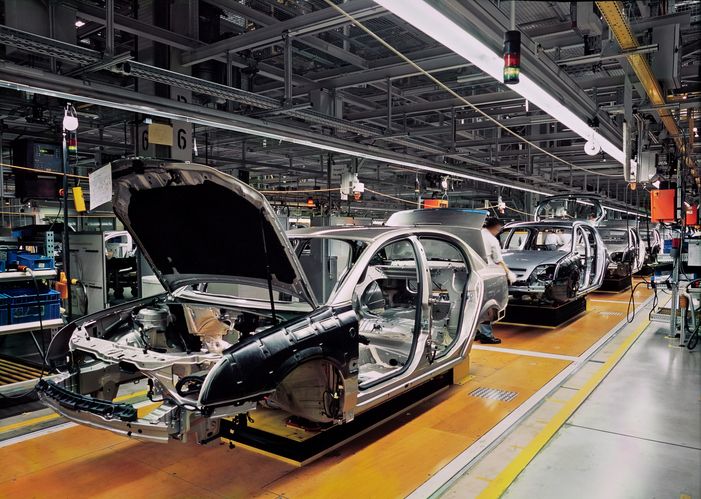 He’s not even president yet, but Donald Trump seems to have found the key to motivating American CEOs collectively and individually to the kind of action he wants from them: Speak loudly and carry a huge Twitter following.
He’s not even president yet, but Donald Trump seems to have found the key to motivating American CEOs collectively and individually to the kind of action he wants from them: Speak loudly and carry a huge Twitter following.
The latest case in point was the decision announced this week by Ford CEO Mark Fields to reverse the company’s plans to build a new plant in Mexico to build small cars that are currently being built in the United States.
Seeming to acquiesce to one of Trump’s biggest complaints on the campaign trail, Ford won’t add capacity south of the border to build Focus and other small-car models. Instead, it will make them at an existing plant in Mexico. Meanwhile, Fields announced a beefing up of jobs in Michigan as the company ramps up production of new electric vehicles and heads toward self-driving models.
Some complain that Trump is constructing an ad hoc industrial policy 140 characters at a time even before he gets to the White House. They observe that he picks selectively on certain companies. Ford, Carrier, Boeing and Lockheed Martin’s CEOs all have been subject to Trump’s pointed post-election criticism. In any event, their spotlight serves as a warning to other CEOs.
But there has been another effect of Trump’s frenetic activity during the transition: Collectively, CEOs are looking right past the Obama administration to a near future in which they believe that growth will take hold and the economy will gain over its sluggishness of the last eight years.
“This is a vote of confidence in President-Elect Trump and some of the policies he may be pursuing,” Fields told reporters about his Mexico decision. “We see a more positive U.S. business environment under Trump.”
At the same time, Fields also insisted that Ford would have made the same decision about the new plant in Mexico regardless of who the president would be. Small-car sales have been fading for some time, he said, making it perhaps wiser for Ford to forego construction of an entire new plant—anywhere—to make them.
Beyond winning such individual showdowns with CEOs in his crosshairs, Trump also has been managing to build a collective confidence in American CEOs that appears ready to hatch in one of the most important ways: an uptick in business investment and spending, even despite rising interest rates.
“We could be in store for a significant [capital-expenditure] boom” as CEOs gain confidence that the Trump administration and Republican congressional majorities will bring regulatory rollbacks, corporate tax breaks and increased infrastructure spending, Charles Mulford, an accounting professor at Georgia Institute of Technology, said.
One way or another, President Trump is likely to continue to focus on the actions, interests and concerns of CEOs. Business leaders seem to be ready.

Chief Executive Group exists to improve the performance of U.S. CEOs, senior executives and public-company directors, helping you grow your companies, build your communities and strengthen society. Learn more at chiefexecutivegroup.com.
0

1:00 - 5:00 pm
Over 70% of Executives Surveyed Agree: Many Strategic Planning Efforts Lack Systematic Approach Tips for Enhancing Your Strategic Planning Process
Executives expressed frustration with their current strategic planning process. Issues include:
Steve Rutan and Denise Harrison have put together an afternoon workshop that will provide the tools you need to address these concerns. They have worked with hundreds of executives to develop a systematic approach that will enable your team to make better decisions during strategic planning. Steve and Denise will walk you through exercises for prioritizing your lists and steps that will reset and reinvigorate your process. This will be a hands-on workshop that will enable you to think about your business as you use the tools that are being presented. If you are ready for a Strategic Planning tune-up, select this workshop in your registration form. The additional fee of $695 will be added to your total.

2:00 - 5:00 pm
Female leaders face the same issues all leaders do, but they often face additional challenges too. In this peer session, we will facilitate a discussion of best practices and how to overcome common barriers to help women leaders be more effective within and outside their organizations.
Limited space available.

10:30 - 5:00 pm
General’s Retreat at Hermitage Golf Course
Sponsored by UBS
General’s Retreat, built in 1986 with architect Gary Roger Baird, has been voted the “Best Golf Course in Nashville” and is a “must play” when visiting the Nashville, Tennessee area. With the beautiful setting along the Cumberland River, golfers of all capabilities will thoroughly enjoy the golf, scenery and hospitality.
The golf outing fee includes transportation to and from the hotel, greens/cart fees, use of practice facilities, and boxed lunch. The bus will leave the hotel at 10:30 am for a noon shotgun start and return to the hotel after the cocktail reception following the completion of the round.